As a pet owner, it’s important to provide your furry friend with a comfortable and healthy living environment. This includes providing them with a spacious cage or enclosure, nutritious food and treats, exercise equipment, and grooming supplies. A larger living space can positively impact your pet’s well-being, and there are suitable cages or enclosures for different types of pets. It’s also essential to provide a well-balanced diet for your pet, including different types of food that suit small animals, and occasional treats in moderation. Exercise is crucial for your pet’s physical and mental health, with suitable equipment available for different types of small animals. Regular grooming is necessary to maintain proper hygiene, with essential grooming supplies available for different types of small animals. Incorporating these elements into your pet’s routine can improve their health and overall well-being.
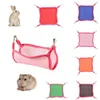
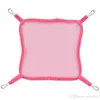
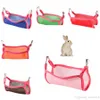
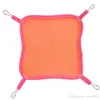
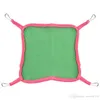


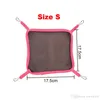
Spacious Cage or Enclosure
Small animals such as hamsters, gerbils, rabbits, guinea pigs, and birds require enough space to move around, climb, play, and explore their surroundings. It’s important to choose a cage or enclosure that is appropriate for their size and allows them to engage in natural behaviors. A cramped cage can lead to stress, anxiety, boredom, and even health issues like obesity, respiratory problems, and infections.
A spacious cage or enclosure has several benefits for small animals. Firstly, it provides them with ample room to exercise and maintain a healthy weight. For instance, a rabbit should have enough space to stand up on their hind legs, stretch out fully, and hop around without any obstacles. Secondly, a larger living space allows the animal to express their natural behaviors such as burrowing, digging, and exploring. Hamsters and gerbils need sufficient bedding material to create tunnels and nests, while birds require perches, toys, and swings to fly and play. Thirdly, a spacious cage reduces the risk of aggression and territorial behavior among pets that share the same space.
Different types of pets require different types of cages or enclosures. For instance, rabbits need a hutch or pen that allows them to move around freely, preferably with a sheltered sleeping area. Guinea pigs require a cage that is at least 7.5 square feet, with a solid floor and plenty of bedding material. Hamsters and gerbils need a cage that is at least 360 square inches, with tunnels, hideouts, and chewable toys. Birds need a cage that is large enough for them to fly back and forth, with perches of varying heights and diameters. Reptiles require an enclosure that mimics their natural habitat, with heat lamps, substrate, and hiding spots.
Nutritious Food and Treats
First and foremost, it is essential to provide your pet with a high-quality commercial pellet or mix that is specifically designed for their species. For example, rabbits and guinea pigs should be fed a diet that is high in fiber and low in fat, while hamsters and rats require a higher protein content. It is important to read labels carefully and choose a product that meets your pet’s nutritional requirements.
In addition to commercial food, it is also beneficial to offer fresh fruits and vegetables as a supplement to your pet’s diet. Leafy greens such as kale and spinach provide important vitamins and minerals, while carrots and apples make great treats and can help keep teeth healthy. However, it is important to introduce new foods gradually and in moderation to avoid digestive upset.
Speaking of treats, it can be tempting to spoil our pets with goodies, but it is important to do so in moderation. Too many treats can lead to obesity and other health problems. Look for treats that are specifically designed for your pet’s species and choose ones that are low in sugar and fat. Small amounts of healthy treats can be a great way to bond with your pet and provide mental stimulation.
Exercise Equipment
For small animals such as hamsters, gerbils, and mice, running wheels are an excellent form of exercise equipment. These small critters are active by nature and require frequent opportunities to run and play. Running wheels come in various sizes, so be sure to select one appropriate for your pet’s size.
Rabbits and guinea pigs enjoy running, jumping, and playing hide-and-seek. Encourage these activities by providing them with toys and tunnels. Additionally, indoor cages should be spacious enough for these animals to move freely and engage in exercise.
Cats are known to be natural hunters and climbers. Interactive toys such as feather wands and laser pointers promote physical activity and cognitive stimulation. Scratching posts and cat trees provide a safe outlet for climbing and scratching behavior.
Dogs require the most exercise of all pets. They benefit from daily walks, runs, and playtime. Leashes, harnesses, and collars are essential components of dog exercise equipment. A gated yard or dog park is ideal for off-leash playtime, promoting socialization and exercise.
Incorporating regular exercise into your pet’s routine provides numerous health benefits. Physical activity helps reduce stress and anxiety, improve cardiovascular health, strengthen muscles and bones, and promote longevity. Mental stimulation is equally important, as it helps keep your pet’s mind sharp and improves their overall mood.
Grooming Supplies
Firstly, let’s talk about why grooming is such a crucial aspect of pet care. Regular grooming helps prevent a wide range of health issues, including skin infections, matted fur, and insect infestations. Moreover, it also helps you detect any health concerns early on, such as lumps or bumps that might require veterinary attention. Grooming also promotes bonding between you and your pet since it’s an opportunity to show your love and affection.
Now, let’s dive into some of the essential grooming supplies for different types of small animals.
For dogs, a good-quality shampoo and conditioner are a must-have. There are different types of shampoos, depending on your dog’s coat; for example, if your dog has sensitive skin, you might opt for a hypoallergenic formula. Other essential supplies include a brush or comb, nail clippers, and ear cleaner. Regular brushing helps prevent matting and shedding, while nail trimming ensures your dog’s paws remain healthy and comfortable. Ear cleaning is also important since dogs are prone to ear infections due to their floppy ears.
For cats, a slicker brush and a metal comb are necessary to keep their fur tangle-free and shiny. Nail clippers and ear cleaner are also essential. Cats tend to groom themselves, so they don’t need frequent baths like dogs, but you can use dry shampoo to freshen them up if needed.
Small animals like guinea pigs and rabbits require regular brushing to prevent matting and hairballs. A soft-bristled brush and a comb are ideal for these pets. You can also use special grooming wipes to clean their fur. Additionally, nail clippers and ear cleaner are essential, just like for dogs and cats.
Lastly, let’s talk about the benefits of regular grooming for your pet’s health and well-being. As mentioned earlier, grooming helps prevent health issues by keeping your pet clean and free from parasites. It also promotes circulation and gives you a chance to check for any abnormalities on your pet’s skin or coat. Furthermore, grooming can be a soothing activity for both you and your pet, reducing stress and anxiety.
In conclusion, grooming supplies are essential for maintaining your pet’s health and well-being. From shampoo and conditioner to brushes and nail clippers, each item plays a vital role in keeping your pet clean, healthy, and happy. Regular grooming is a great way to bond with your furry friend and show them how much you care. So, invest in some quality grooming supplies today and give your pet the attention they deserve!
FAQ
Q: What are some essential large animal supplies needed to keep my pet healthy and happy?
A: Some must-have large animal supplies include a spacious cage, bedding, food and water bowls, chew toys, and exercise equipment such as tunnels or wheels. Providing your pet with a comfortable and stimulating environment is crucial to their overall well-being.
Q: How often should I clean my pet’s cage?
A: Depending on the type of animal and the size of their enclosure, cleaning frequency may vary. Generally, it is recommended to spot-clean daily and do a thorough deep clean once a week. This involves removing all the bedding, scrubbing the cage thoroughly with soap and water, and disinfecting any accessories.
Q: What kind of bedding is best for my small pet?
A: There are several types of bedding options available, including paper-based products, wood shavings, or natural fibers like hay or straw. The ideal bedding will depend on your pet’s species and preferences. For example, rabbits and guinea pigs usually prefer soft bedding materials like fleece or paper, while hamsters and rats may prefer denser materials like wood shavings.
Q: How can I ensure my large pet gets enough exercise?
A: Many small animals require ample exercise to stay healthy and happy. Providing them with an appropriate-size wheel or tunnel to explore is a great way to encourage activity. Additionally, allowing them out of their cage to play in a safe, supervised area can be beneficial. Be sure to research your pet’s needs and provide them with enough space and stimulation to prevent boredom and encourage physical activity.

